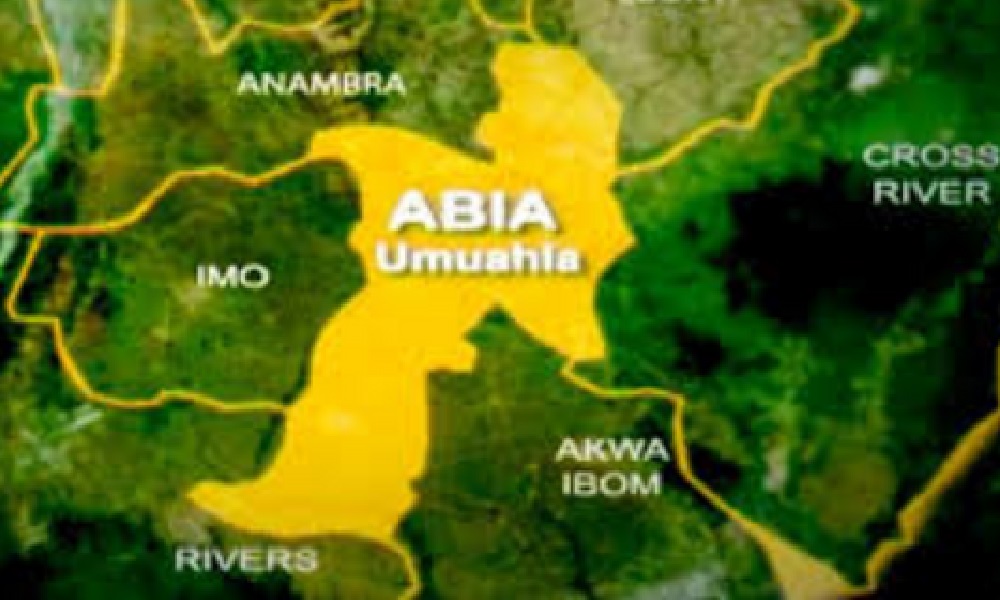News
How terrorists get arms, ammunition – DHQ

The Defence Headquarters (DHQ) has explained how government weapons end up in the hands of terrorists.
It said terrorists get such arms when they attack military formations.
The Director of Defence Media Operations, Maj.-Gen. Edward Buba, said this while addressing reporters on military operations across the country.
Last week, the National Security Adviser (NSA), Mallam Nuhu Ribadu, had said a sizeable number of illicit arms being used by non-state actors originally belonged to the government.
Ribadu said the weapons ended up in the hands of non-state actors due to corrupt elements within the security agencies.
Echoing the NSA’s statement, Buba said: “When we talk about the proliferation of arms, first, you have to look at what happened in Libya years ago, in the Sahel.
“Now, this allowed arms to get into the wrong hands and then filtered into our country. This worsened the issue of insurgency and terrorism that we are faced with in the country.
“It is not a surprise. As we have seen, several of our troops have been ambushed or killed and their arms taken.
“But what we have done is that in every such instance, we have made the terrorists pay a greater price than we have been forced to pay in such circumstances.”
The DHQ also said troops on operations across the country arrested 135 terrorists, including two Indigenous People of Biafra (IPOB) leaders, killed 140 terrorists and rescued 76 kidnap victims.
Buba said troops of Operation Udo Ka at Forward Operating Base (FOB) in Orsu Local Government Area of Imo State arrested an IPOB leader identified as Pius Iguh.
The suspect is said to be a founding father of Eastern Security Network (ESN) in Orsu general area of Imo State.
Buba said troops at FOB Amaruku arrested another IPOP leader, identified as Emmanuel Onwugu in Mbano Local Government Area of Abia State.
The defence spokesman said troops, in collaboration with other security forces, arrested a “notorious cult leader” called Ifeanyi Rock with 10 of his combatants in Arochukwu area of Abia State.
He said the troops within the period recovered 241 assorted weapons and 3,254 assorted ammunition, among others.
He gave a breakdown of recovered weapons as follows; 141 AK-47 rifles, one PKT gun, two FN rifles, 17 fabricated rifles, 26 Dane guns, 13 pump action guns, four locally-made pistols, one Barreta pistol, two bayonets and 42 AK-47 magazines.
Others include 2,016 rounds of 7.62mm special ammo, 970 rounds of 7.62mm NATO, 33 rounds 7.62 x 54mm ammo, 76 rounds of 9mm ammo, 113 live cartridges, two Baofeng radios, three vehicles, 31 motorcycles, 18 mobile phones and the sum of N79,052,150.00 and 19$ only amongst other items.
Also, in the Niger Delta region, Buba said troops destroyed 47 illegal refining sites, arrested 18 suspected oil thieves and recovered stolen products worth N1,751,886,550.00.
The troops also destroyed 33 crude oil cooking ovens, 19 dugout pits, 41 boats, 70 drums, and 22 storage tanks.
The defence spokesman said troops also recovered 13 speedboats, one tricycle, four motorcycles, three vehicles, 1,122,710 litres of stolen crude oil and 557,210 litres of illegally refined AGO.
Also, troops of 6 Brigade of the Nigerian Army/Sector 3 of Operation Whirl Stroke (OPWS) have dismantled a notorious kidnapping syndicate said to be terrorising parts of Jalingo, the Taraba State capital, and Lau Local Government Area of the state.
Acting on an intelligence report, the first two suspects, identified as Ali Idi and Haruna Umar, were apprehended on October 22 during a raid at a local hotel in Mayo Dassa area of Jalingo where they were reportedly hiding.
A search on their mobile phones revealed incriminating evidences, including a photograph showing Haruna Umar brandishing an AK-47 rifle alongside another individual at a yet to be identified location.
Further investigations led to the discovery that the gang’s hideout was at Kona Mountain in Jalingo Local Government Area, where additional members of the syndicate were believed to be camped.
Troops conducted a follow-up operation at Kona Mountain on October 23, and the suspected leader of the gang, identified as Dahiru Idi (aka Yellow), was apprehended.
Upon interrogation, he confessed to the recent kidnapping of three individuals, from whom a ransom of N6 million was extorted before their release.
The gang leader also said the two AK-47 rifles used in their operations had been taken to another location by another gang member, Yakubu Dogo, in preparation for an upcoming operation.
News
Oyedepo’s jet can’t leave private airstrip without clearance – Keyamo

The Minister of Aviation and Aerospace Development, Festus Keyamo, on Sunday said there was no way the private plane of privileged Nigerians, including the Founder and Presiding Bishop of Living Faith Bible Church Worldwide, Bishop David Oyedepo, can leave the country directly from their airstrips without first securing clearance from relevant authorities.
Keyamo made the clarification when he was featured as a guest on Channels Television’s Politics Today.
His statement comes barely two months after members of the House of Representatives called for a revocation of airstrip licences issued to certain individuals and private organisations, citing security reasons.
The House also called for an immediate halt to new airstrip licences for individuals and organisations.
But Keyamo insisted that there was no way a plane or drone, even if it belongs to the military, can leave or come into the country without first getting a nod from the agency.
When asked if the airstrip of Oyedepo also passed through the same due process, Keyamo nodded.
He said, “Oh yes, absolutely. That’s no problem. They were only concerned about the fact that they thought that somebody can take off from a private airstrip and fly out of Nigeria or fly into Nigeria. It is not possible.
“You must land in an international airport first. Then the Customs, immigration and NDLEA will process you before you take off from there to your private airstrip. If you are also flying out, you must land at an international airport. You will go through Customs, immigration and all the normal process before flying out.
“So nobody uses an airstrip for any such purpose without seeking clearance. At every point in time, the authorities must approve.”
When quizzed on how many airstrips the country is operating at the moment, Keyamo said they are in the range of 40.
“We have a number of them, more than 40. For the federal airport, we have 23. The state airport has about eight or nine now.
“And then the airstrips are about 40 or thereabouts. I have been there myself,” he stated.
News
Abia bans unauthorised free medical outreaches

The Abia State Ministry of Health has reacted to the hospitalisation of some persons who attended a free medical outreach in Abiriba, Ohafia LGA, on Saturday, saying that the distribution of drugs to the public by uncertified persons was without the authorisation of the state government.
The Commissioner for Health, Professor Enoch Ogbonnaya Uche, who said this in a press release on Sunday, said that the organisers of the medical outreach did not obtain approval from the state government before embarking on the exercise.
He therefore announced that any medical outreach without authorisation from the Ministry of Health is illegal and can put the health of Abia people in jeopardy, warning that those who do so would be made to face the full wrath of the law.
DAILY POST recalls that many people were rushed to the hospital on Saturday at Abiriba after developing some medical emergencies on return from the medical outreach organised by a group.
According to Processor Uche, preliminary reports indicated that medications distributed during the outreach may have caused adverse drug reactions among unsuspecting recipients, even as he said that the identified victims of these untoward medical events are currently receiving medical attention at designated public health facilities within the state.
“Our dedicated healthcare personnel are working assiduously to stabilise and treat affected people. The Abia State Ministry of Health is deeply concerned by the dire consequences and high risk posed by unauthorised healthcare activities. We wish to hereby warn the public to be cautious of individuals and groups organising unapproved healthcare events,” said the health commissioner.
News
Many Pastors Are Not Enjoying Their Marriages Due To Wives’ Behaviours – Bamiloye

Renowned Christian filmmaker and evangelist, Mike Bamiloye, has raised concerns about the challenges some pastors face in their marriages, attributing these struggles to the behavior of their wives.
Bamiloye shared that many pastors are unable to fully enjoy their marriages because their wives use their husbands’ pastoral roles against them. He explained that some pastors’ wives feel secure in the knowledge that their husbands, being men of God, are unlikely to consider divorce or other drastic measures. This, according to Bamiloye, emboldens them to act in ways that strain the marital bond.
He pointed out that such behavior not only affects the pastors but also impacts their ministry, as they are expected to maintain exemplary relationships in the eyes of their congregations.
In addressing this issue, Bamiloye emphasized the need for mutual respect, understanding, and open communication in pastoral marriages. He urged pastors and their wives to prioritize their relationship and seek counseling when faced with difficulties.
“Pastors’ marriages should be a beacon of light and a model for others. When the relationship at home is troubled, it can hinder the effectiveness of their ministry,” he noted.
Bamiloye’s observations have sparked important conversations within Christian circles about the unique pressures pastoral families face. His call to action serves as a reminder of the importance of building healthy relationships and seeking support to ensure that ministry work does not come at the cost of personal happiness and marital stability.
-

 News14 hours ago
News14 hours agoJust in: Dangote Refinery reduces price of petrol to N970 per litre
-

 Metro17 hours ago
Metro17 hours agoNDLEA nabs businessman at Enugu airport for ingesting 90 wraps of cocaine +Photos
-

 Politics17 hours ago
Politics17 hours agoParty Crisis Escalates: PDP NEC Meeting Delayed for the Fourth Time
-

 News17 hours ago
News17 hours agoSAD! Roman Catholic Oldest Priest Monsignor Thomas Oleghe dies at 103
-

 News16 hours ago
News16 hours agoInsecurity! Bandits k!ll 7 farmers, burn 50 bags of maize in Niger state
-

 News10 hours ago
News10 hours agoObasanjo narrates how he escaped becoming drug addict
-

 News14 hours ago
News14 hours agoJoint Security Patrol Team wastes Kidnapper in gun duel along Enugu/Ukwu Road
-

 Metro13 hours ago
Metro13 hours agoBREAKING: UK Court Fines Popular Journalist David Hundeyin £95000 for Libel








